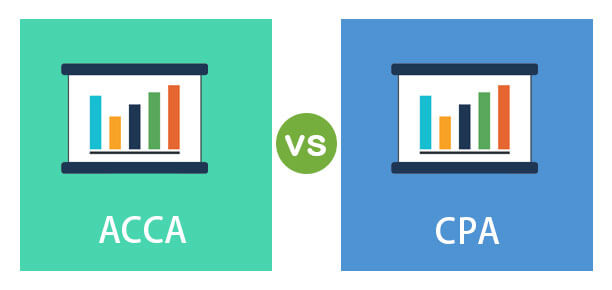Challenges and Best Practices in Financial Modeling

The Certified Management Accountant (CMA) certification is a professional credential that demonstrates an individual’s proficiency in advanced accounting and financial management skills. This designation, which is offered by the Institute of Management Accountants (IMA), is highly respected in the business world and can open up many opportunities for career advancement. In addition to the knowledge … Continue reading "Top Skills You’ll Gain from Earning Your CMA Certification"

The Certified Management Accountant (CMA) certification is a professional credential that demonstrates an individual’s proficiency in advanced accounting and financial management skills. This designation, which is offered by the Institute of Management Accountants (IMA), is highly respected in the business world and can open up many opportunities for career advancement.
In addition to the knowledge and experience gained while preparing for the CMA exams, there are several key skills that you will acquire through the certification process. These skills can significantly enhance your career prospects and set you apart from other professionals in the field. This blog will discuss some of the top skills you can expect to gain from earning your CMA certification.
A significant part of a management accountant’s job is identifying and managing risks. Whether it’s assessing the financial impact of new regulations or evaluating the potential costs of entering a new market, CMAs must be able to think critically about the various risks facing their organizations. By earning your CMA certification, you will develop a strong understanding of risk management principles and how to apply them in real-world situations.
As a CMA, you will also develop strong strategic planning and analysis skills. The certification process requires you to learn to evaluate and analyze financial data to make strategic business decisions. This can include identifying trends, assessing risks, and determining the financial impact of different courses of action. These skills are highly sought after by employers and can be applied to a wide range of industries.
The CMA exam also covers topics related to budgeting and forecasting, which are vital skills for any organization. Becoming a CMA will teach you how to create and manage budgets that align with organizational goals and objectives. Additionally, you will gain expertise in forecasting future financial performance using various techniques and methods. These skills are essential for effective financial planning and can help organizations make informed decisions about resource allocation.
One of the key skills that sets CMAs apart from other accounting professionals is their in-depth knowledge of management accounting techniques. This includes cost analysis, variance analysis, and performance measurement. By mastering these techniques, you can provide valuable insights into how a company can improve its financial performance and make more informed business decisions.
Being a CMA also requires strong communication and leadership skills. As you progress through the certification process, you will develop the ability to communicate complex financial information to a variety of stakeholders effectively. This includes presenting financial reports and making recommendations based on your analysis.
In addition to technical skills, CMAs must also adhere to strict ethical standards. The CMA exam covers topics related to ethical behavior and professional responsibility, ensuring that all CMAs uphold the highest levels of integrity in their work. This is crucial in maintaining the credibility and trust of stakeholders, such as clients, investors, and regulators.
In short, becoming a CMA means mastering technical accounting skills and developing strong communication, leadership, and ethical standards. These skills are essential for success in the constantly evolving world of finance and will help you stand out as a valued professional in your field.
If you want to pursue a career as a CMA, consider enrolling in a course at Kaplan Professional ME. As the best CMA training institute in Dubai, our courses are designed to help you succeed in your CMA journey. We offer comprehensive study materials, expert instructors, and flexible course delivery options to fit your schedule.
As businesses grow and evolve, so do their tax obligations. Companies need to stay up-to-date and compliant with their tax responsibilities and constantly changing tax laws. This makes corporate tax training a crucial aspect of business operations. Understanding the importance of following tax rules, here are the reasons why corporate tax training is beneficial for … Continue reading "Why Corporate Tax Training is a Must in Today’s Economy?"

As businesses grow and evolve, so do their tax obligations. Companies need to stay up-to-date and compliant with their tax responsibilities and constantly changing tax laws. This makes corporate tax training a crucial aspect of business operations.
Understanding the importance of following tax rules, here are the reasons why corporate tax training is beneficial for businesses in today’s economy:
The primary reason for corporate tax training is to ensure businesses comply with ever-changing tax laws and regulations. This includes federal, state, and local taxes that are constantly being updated and amended. Failure to comply with these regulations can result in penalties, fines, or even legal action.
Corporate tax laws can be complex, and one small mistake in calculations or reporting can result in costly consequences for a company. By investing in corporate tax training, businesses can ensure that their employees have the necessary knowledge and skills to handle their tax obligations accurately. This can save companies from potential financial losses due to errors.
With proper corporate tax training, companies can learn how to take advantage of tax deductions, credits, and incentives that can significantly reduce their tax burden. This can result in significant savings for businesses, allowing them to allocate those funds towards other areas of the company.
Staying up-to-date with tax laws can give businesses a competitive edge. By having employees who are trained in tax laws, businesses can ensure that they are taking advantage of all available opportunities to reduce their tax liability and stay ahead of the competition.
Tax-related risks can have a significant impact on a company’s financial stability. This includes audits by tax authorities, disputes over tax liabilities, and potential legal action. By investing in corporate tax training, businesses can mitigate these risks and ensure compliance with laws regarding corporate tax in UAE, reducing the likelihood of facing penalties or legal action.
Businesses that accurately handle their taxes and comply with regulations are viewed as responsible and trustworthy by customers, investors, and stakeholders. This can help maintain a positive reputation for the company and build trust within the business community.
As part of corporate tax training, businesses learn how to properly track and report their financial information. This helps them stay compliant with tax laws and provides valuable insights into their financial health. By understanding the company’s financial situation, businesses can make more informed decisions and create better long-term financial plans.
Investing in corporate tax training benefits the company and its employees. Providing employees with training opportunities shows that the company values their professional growth and development. This can improve employee satisfaction, motivation, and retention rates, which in turn leads to a more productive and dedicated workforce.
The Certified Diploma in Corporate Income Tax – UAE by Kaplan Professional ME equips you with comprehensive knowledge of administration, collection, and enforcement aspects mandated by the Federal Tax Authority. These are vital for all organizations to implement and adhere to.
Kaplan’s corporate tax course in the UAE aligns with the region’s regulations and legal prerequisites regarding Corporate Income Tax. This program empowers candidates with the technical and practical expertise essential to navigate the UAE’s tax laws. The Certified Diploma in Corporate Income Tax is endorsed by KHDA in the UAE.
Need to ensure your corporate tax compliance? Reach out to us at info@kaplanme.com or 04-554-6184 for corporate tax training.
With the ever-increasing complexity of financial markets and the constant evolution of risk management practices, having a professional certification has become more important than ever for those aspiring to build a successful career in this field. One such certification that stands out among the rest is the Financial Risk Manager (FRM) certification. What is FRM … Continue reading "The Role of FRM Certification in Shaping a Risk Manager’s Career"

With the ever-increasing complexity of financial markets and the constant evolution of risk management practices, having a professional certification has become more important than ever for those aspiring to build a successful career in this field. One such certification that stands out among the rest is the Financial Risk Manager (FRM) certification.
The FRM certification is a globally recognized professional designation for risk managers. It is designed to demonstrate one’s expertise in identifying, measuring, and managing financial risks in various areas, such as credit, market, operational, and liquidity risk. The financial risk manager course covers a wide range of topics including quantitative analysis, financial markets and products, valuation and risk models, as well as risk management practices and regulatory issues.
1. Credibility and Recognition: The FRM certification is highly regarded by employers, regulators, and clients as a mark of excellence in the field of risk management. It provides credibility to your skills and knowledge, making you stand out among other candidates for job opportunities.
2. Career Advancement: Holding the FRM certification can open doors to new career opportunities and help you climb the corporate ladder faster. Many organizations prefer hiring certified risk managers as it reflects their commitment towards maintaining high standards in managing financial risks.
3. Global Recognition: The FRM certification is recognized globally, giving you a competitive edge in the international job market. It proves that you possess a deep understanding of risk management principles and can apply them in various geographical regions.
4. Networking Opportunities: As a certified FRM, you become part of a global community of risk professionals who share similar knowledge and interests. This provides opportunities for networking, exchanging ideas, and staying updated with the latest trends and developments in the field.
5. Prestige: The FRM certification is highly regarded in the financial industry, earning you respect and recognition from your peers, employers, and clients. It showcases your dedication to advancing your skills and knowledge in risk management.
6. Versatility: FRM training covers various topics, making it applicable to multiple industries and sectors. This versatility allows you to explore different career opportunities in risk management, including banking, insurance, consulting, and more.
7. Career Advancement: FRM certification can open doors for career advancement by demonstrating your expertise and commitment to the field of risk management. It could lead to higher job responsibilities, promotions, and even executive-level positions.
At Kaplan Professional ME, we offer the FRM® Certification training program, which is designed to meet the educational standards set by the KHDA in the UAE. Our candidates must demonstrate mastery in critical areas of risk management by passing two intensive exams, which encompass 10 comprehensive topics, including quantitative analysis, risk management foundations, and current financial market issues.
We deliver training throughout the year in various learning modes, providing flexibility to accommodate our candidates’ schedules. Furthermore, we provide our students with an immersive learning experience, granting access to an extensive array of online resources and bite-sized, tutor-led videos.
If you are considering a career in HR or L&D or are already working in the field and looking to advance your professional qualifications, the Chartered Institute of Personnel and Development (CIPD) offers a range of levels to suit your needs. But how do you determine which CIPD level is right for you? Read to … Continue reading "Which CIPD level is right for you?"

If you are considering a career in HR or L&D or are already working in the field and looking to advance your professional qualifications, the Chartered Institute of Personnel and Development (CIPD) offers a range of levels to suit your needs. But how do you determine which CIPD level is right for you? Read to explore the different levels and their relevance to your career. But first, let’s understand more about what CIPD is.
The CIPD (Chartered Institute of Personnel and Development) qualifications are recognized globally as the HR and L&D gold standard, with almost 160,000 members across the world. They offer a recognized standard of excellence that demonstrates proficiency in HR management. Having a CIPD qualification shows that you’re a skilled HR or L&D professional who can help a company succeed and adapt to changes in the industry. In this article, you will discover the benefits of obtaining a CIPD qualification, the various levels of CIPD, and which level is most suitable for you.
The CIPD qualification offers an array of benefits to those who pursue it.
Anyone can pursue this qualification without prior HR and L&D experience, making it accessible to anyone interested in advancing their career in these fields.
It provides a globally recognized credential, enhancing the professional reputation and credibility of individuals in HR and L&D.
CIPD certifications are becoming highly sought after. By February 2023, CIPD qualifications were ranked as the 10th most commonly requested certification for HR job postings.
Our curriculum is designed by our team of experts, ensuring that it reflects the latest industry trends and practices. It aims to equip learners with up-to-date knowledge and skills that are relevant and applicable in today’s dynamic workplace environments.
As a recognized benchmark, the CIPD qualification stands as a mark of expertise and proficiency within the field. Pursuing CIPD not only fosters personal and professional growth but also opens doors to exciting opportunities for career advancement and development within the dynamic landscape of HR and L&D.
CIPD members have the potential to earn significantly more than professionals who are not certified. According to data gathered by CIPD between March 2022 and February 2023, the average earning of people professionals with a CIPD certification was 12% higher than those without it.
Wondering which qualification is best for you? Continue reading to find out!
There are three levels of CIPD qualifications and are delivered by CIPD-approved study centers.
Level 3: Foundation Certificate in People Practice
The CIPD Level 3 qualification is ideal for you if you are looking to find your first role in the people profession or are working in support roles and aim to progress. This course provides a solid foundation in HR and the essential skills and knowledge required to excel in the field. The expected duration to complete this certification is 8-12 months and you will become a CIPD foundation member upon successful completion.
Level 5: Associate Diploma
If you have some work experience in HR or L&D and want to grow your professional expertise, the CIPD Level 5 qualification is a great choice. This qualification is designed for mid-level HR and L&D professionals aiming for career advancement. The Level 5 qualification dives deeper into HR and L&D practices, equipping you with the skills to handle more complex challenges. The expected duration to complete this certification is 12-16 months and you will be awarded the CIPD Associate membership upon successful completion.
Level 7: Advanced Diploma
If you are an experienced people professional in senior HR or L&D roles or aspiring to be an HR leader, the CIPD Level 7 will be the right choice for you. The Level 7 qualification is designed for strategic thinkers who want to take the lead and shape the future of their profession. It covers advanced topics and equips you with the expertise needed to lead HR and L&D strategies. The expected duration to complete this certification is 16-24 months and you will be awarded a CIPD Associate membership upon successful completion. You can then apply to upgrade to Chartered Member (MCIPD) or Chartered Fellow (FCIPD), depending on your experience.
When deciding which CIPD level is right for you, there are several factors to consider like…
If you are just starting, the Foundation Level is a good starting point. If you have some experience, you may be better suited for the Intermediate Level. And if you are a seasoned professional looking to take your career to new heights, the Advanced Level would be better suited for you. You’ll read more on those different levels later.
Where do you see yourself in the next five years? Which level of qualification will support your aspirations and help you achieve your goals? It’s essential to align your CIPD level with your career ambitions to get the most out of your professional development journey.
Each CIPD level requires a different level of time and effort. The higher the level, the more demanding the coursework. Be realistic about your availability and make sure you can commit to your chosen CIPD level.
CIPD is an excellent choice for people professionals who want to develop and enhance their knowledge and skills. And, determining the right level for your career advancement in HR or L&D is crucial for maximizing your professional potential.
Interested in pursuing the CIPD qualification? Kaplan Professional ME is one of the CIPD-approved study centers in the UAE and we currently offer the CIPD Level 3 Certification program in Dubai, Abu Dhabi, and the rest of the Middle East region. Our program is led by qualified trainers with a comprehensive curriculum for a fruitful, yet seamless journey with interactive sessions, extensive assessment guidance, customized study resources, and flexibility.
For more information, get in touch with us at info@kaplanme.com or call us at 04-554-6184.
You might be asking yourself if the CFA charter is worth it because you heard the CFA Program is expensive and it takes a long time to become a CFA charterholder. Or perhaps you’re considering switching careers and looking for information about what you’d be getting yourself into. In this blog, we provide the necessary … Continue reading "Is the CFA charter worth it?"

You might be asking yourself if the CFA charter is worth it because you heard the CFA Program is expensive and it takes a long time to become a CFA charterholder. Or perhaps you’re considering switching careers and looking for information about what you’d be getting yourself into.
In this blog, we provide the necessary context to help you decide if the CFA is right for you. Our goal is to help you set expectations about the outcomes for CFA charterholders and provide you with options in case you decide that the CFA charter is not right for you at this time.
Typically, the CFA Program is finished by people with backgrounds in finance, accounting, economics, or business. Having a financial background is not necessary to pursue the CFA charter; however, you will need 4,000 hours of “professional work experience” completed in a minimum of 36 months in areas like trading, corporate finance, and economics to become a CFA Charterholder.
Each person will have their own set of personal factors to consider when deciding if the CFA charter is right for them. Information about those factors usually requires more context than what is provided in CFA FAQ’s
Upfront, you should understand that the CFA charter can indeed help you in your career, but it’s not the silver bullet for success. You are the secret to your success, and the CFA charter is just one part of that.
We’ve learned an important fact: Charterholders who landed new finance jobs or moved up in their organizations applied passion, dedication, determination, and other common CFA traits to their job search or upward career move. In other words, they didn’t stop working hard after they passed the CFA exams. They also did not set the bar too high in their job search or in their desire for a better position. Instead, they did their homework on the types of jobs where a CFA charter is more likely to be respected and designed a long-term plan for working hard and moving into management.
For example, if you are a student you could use your journey through the CFA Program to get an internship or an entry-level position to start gaining the experience needed to officially become a CFA charterholder
If you’re already working in the financial industry, we’ve seen success come to those who applied for positions or promotions where the charter is seen as advantageous. According to CFA Institute, 22% of CFA charterholders are employed as portfolio managers.
Again, you are the secret to your success. Other things you can do to help your career are:
• Leveraging personal contacts
• Joining a CFA society
• Network on social media
• Attend events related to your career aspirations to meet possible employers
• Sharpen your presentation skills
• Practice interviewing
• Try not to get discouraged along the way
Honestly thinking about how much free time you have to dedicate to the CFA Program should be a priority for you. Some important information to consider if you don’t have lots of free time should be:
• CFA Level I exams are usually only offered four times per year
• You can only take an exam twice per calendar year
• You can’t fail the Level I exam and then re-enroll into the next immediate exam window
• Average CFA candidates can spend more than 300 hours studying for each CFA exam
• You should expect to spend three to four years completing the CFA program.
Determining how much money you can expect to earn after passing all three CFA exams is difficult to determine. If you earn the CFA designation as a mid-level analyst, it’s fair to expect a 15-20% increase in salary. In reality, the CFA designation seems to provide more experienced analysts and managers with a larger salary increase. Again there are many factors that determine salary increases but one thing for sure is that the CFA designation is seen as valuable, especially for candidates in senior roles like risk, investment, and portfolio managers.
For example, if your end goal is to become a portfolio manager at a top firm, the CFA Institute determined in a 2019 compensation studythat US$177,000 was a typical total compensation amount.
According to the U.S Bureau of Labor Statistics, the annual median pay for financial analysts in the U.S is 83,660 USD according to Glassdoor.
Finance professionals who are active CFA charterholder can be rewarded with significant earning benefits such as:
• Performance-based bonuses
• Access to high-net-worth clients
• Consulting and advisory roles
• Opportunities in alternative investments
• Entrepreneurial pursuits
Ready to Begin Your CFA Journey?
If you are interested in joining hands with a leading CFA tuition provider to help make your CFA journey easier, then Kaplan Professional Middle East is here to offer you the expertise of having helped students to successfully ace their CFA exams for several years with the industry’s leading trainers, world-class support, CFA’s most trusted study materials – Kaplan Schweser, and digital solutions. If you are looking for CFA training, join us as a student to kickstart your CFA exam preparation.
The finance and accounting world is highly competitive, and professionals in this field are constantly looking for ways to differentiate themselves. Two popular certifications that many individuals pursue are the Association of Chartered Certified Accountants (ACCA) and the Certified Public Accountant (CPA). While both certifications can open doors for career growth and advancement, there are … Continue reading "ACCA vs. CPA: Understanding the Differences in Certification Training"

The finance and accounting world is highly competitive, and professionals in this field are constantly looking for ways to differentiate themselves. Two popular certifications that many individuals pursue are the Association of Chartered Certified Accountants (ACCA) and the Certified Public Accountant (CPA). While both certifications can open doors for career growth and advancement, there are some key differences between them.
This blog will discuss the fundamental differences between ACCA and CPA certifications. We will explore the requirements, areas of focus, and career opportunities associated with each certification.
ACCA stands for Association of Chartered Certified Accountants. It is a globally recognized accounting qualification focusing on international accounting standards and principles. ACCA is headquartered in London and was founded in 1904. It has over 227,000 members and 544,000 students across the world. ACCA offers a comprehensive curriculum covering various accounting areas, including financial accounting, management accounting, taxation, audit and assurance, corporate law, and ethics.
The program also emphasizes developing critical thinking, problem-solving, and communication skills. To become an ACCA member, candidates must complete 13 exams, have three years of practical experience, and fulfill the ethics and professional skills requirement.
CPA stands for Certified Public Accountant. It is a prestigious certification offered by the American Institute of Certified Public Accountants (AICPA). Established in 1887, AICPA has over 431,000 members in the United States. CPA is a state-specific certification, and its requirements vary from state to state. However, most states require candidates to have a bachelor’s degree in accounting or related fields, complete 150 credit hours of education, and pass the Uniform CPA Exam.
The CPA curriculum covers financial accounting, managerial accounting, auditing, taxation, and law. The program also focuses on developing critical thinking, analytical reasoning, and ethical behavior skills. To maintain the CPA certification, ongoing continuing education is required.
While both ACCA and CPA are highly recognized certifications in the field of accounting, there are some key differences between them.
In short, both the ACCA and CPA certifications offer excellent career opportunities in the accounting and finance field. Depending on your career goals and interests, you can choose between these two prestigious qualifications to advance your professional growth.
At Kaplan Professional ME, we offer comprehensive training programs for aspiring ACCA professionals. Our program are designed to equip our students with the requisite knowledge to pass their ACCA exams and instill a deep understanding of global and local accounting principles.
Our ACCA-certified trainers, experts in various papers, have guided numerous candidates to regional accolades. With rich training and industry backgrounds, they provide tailored guidance and support. Students can access online learning resources and bite-sized tutor-led videos, and also learn to solve complex exam questions through dedicated sessions.
CIPD’s influence on HR and L&D best practices resonates globally, including within the vibrant landscape of the United Arab Emirates (UAE). The Chartered Institute of Personnel and Development (CIPD) has been instrumental in setting and elevating industry standards in this region through its comprehensive courses and certifications. CIPD Courses in the UAE: Elevating Professional Standards … Continue reading "CIPD’s Impact on HR and L&D Best Practices"

CIPD’s influence on HR and L&D best practices resonates globally, including within the vibrant landscape of the United Arab Emirates (UAE). The Chartered Institute of Personnel and Development (CIPD) has been instrumental in setting and elevating industry standards in this region through its comprehensive courses and certifications.
The UAE’s competitive business environment, characterised by its dynamic growth and diverse workforce, has seen an increased emphasis on HR and leadership and development strategies. CIPD’s presence in the UAE through its accredited courses has been pivotal in enhancing the capabilities of professionals within different industries and sectors. Professionals seeking to strengthen their careers in HR or L&D in the UAE can pursue CIPD qualifications tailored to meet the region’s specific industry needs.
Attaining a CIPD qualification stands as a valuable recognition for an individual’s expertise in HR and L&D. The certification process encompasses rigorous training, examinations, and practical assessments, ensuring that professionals are equipped with the knowledge and skills necessary to handle and manage the complexities of modern workplace environment and teams.
CIPD’s influence extends beyond individual certification. It actively shapes industry best practices through collaborations, research initiatives, and ongoing dialogue with HR and L&D leaders in the UAE. By staying well-informed of emerging trends, technological advancements, and the evolving needs of the workforce, CIPD consistently updates its curriculum to ensure relevance and applicability.
The institute’s emphasis on ethical conduct, diversity, and inclusion serves as a benchmark for companies aspiring to create inclusive workplaces in the UAE. CIPD’s impact on HR and L&D practices in the UAE reflects a commitment to excellence and continuous improvement. Its courses, qualifications, and influence on industry standards collectively contribute to shaping a professional landscape that values expertise, innovation, and ethical conduct.
The qualification serves as a gateway to a world of professional opportunities. Once completing your CIPD certification course and qualifications, you will have the privilege to be given with either Foundation or Associate Membership recognised globally which offer myriads of benefits and support. With continuous growth both in knowledge and professional experience, the Chartered Membership or Chartered Fellowship can also be your next career step.
As the UAE’s business environment continues to evolve, CIPD will be a reliable driver of professional standards, nurturing a skilled workforce prepared for the market changes in the future.
Kaplan Professional Middle East is one the leading individual and corporate training companies in the UAE and MENA region and is an approved provider of CIPD qualification. Kaplan Professional has added CIPD level 3 foundation certificate to its list of offered programs. Professionals who are seeking to acquire this certification have options to attend in-person or online classes with the support of CIPD-approved trainers and a comprehensive learning approach.
For professionals, the mantra for success in 2024 revolves around adaptability and continuous growth. The accelerating pace of technological advancements and industry transformations demands a proactive approach towards upskilling and reskilling. Embracing Career Agility Professionals at all levels must possess a diverse skill set to pivot swiftly between roles and industries. Upskilling serves as a … Continue reading "Empowering Professionals: Upskilling in 2024"

For professionals, the mantra for success in 2024 revolves around adaptability and continuous growth. The accelerating pace of technological advancements and industry transformations demands a proactive approach towards upskilling and reskilling.
Professionals at all levels must possess a diverse skill set to pivot swiftly between roles and industries. Upskilling serves as a gateway to unlocking new opportunities, allowing them remain relevant in a competitive job market.
Technology is the heartbeat of innovation, driving industries forward. Professionals need to be tech-savvy and adaptable to new tools and platforms. Upskilling in areas like data analytics, cybersecurity, and AI empowers them to harness these advancements, amplifying their career prospects.
The ability to reskill is a superpower for professionals at all career levels to stay ahead of the curve. It enables them to pivot their careers, explore new domains, or upscale their current roles. This flexibility not only ensures career sustainability but also opens doors to exciting opportunities in emerging fields.
Upskilling also contributes immensely to personal growth and development. It expands one’s knowledge base, fosters intellectual curiosity, and promotes self-confidence. This self-improvement often extends beyond the professional sphere, enhancing interpersonal relationships and overall life satisfaction.
A professional’s employability can significantly increase through upskilling. Possessing a diverse set of skills demonstrates adaptability, a keenness to learn, and a proactive attitude, all of which are highly valued in today’s job market. This could lead to better job opportunities, promotions, or even a higher salary.
In the vibrant professional landscape of 2024, upskilling isn’t a mere choice but a strategic move for professionals to future-proof their careers. Kaplan stands as a partner in this journey, offering tailored programs that empower minds, fuel their ambitions, and align with the ever-evolving demands of the job market.
At Kaplan, we understand that learning is a lifelong journey that does not discriminate based on age or career stage. Our mission is to empower every professional with the chance to stay abreast of industry transformations, be they a young professional, a mid-level manager, or a seasoned executive. We offer various programs in finance, accounting, human resources, leadership and behavioural and digital transformation among others.
By investing in upskilling and leveraging Kaplan’s expertly curated programs, professionals at all levels equip themselves with the tools to navigate the complexities of the modern workplace, unlocking a world of opportunities for their career growth and success.
Financial professionals face a growing demand for standardized financial reporting in an increasingly interconnected global economy. The International Financial Reporting Standards (IFRS) have become the global accounting language, and an IFRS diploma can significantly impact your professional development. This blog will explore the benefits of obtaining an IFRS diploma and how it can enhance your … Continue reading "The Impact of an IFRS Diploma on Your Professional Development"

Financial professionals face a growing demand for standardized financial reporting in an increasingly interconnected global economy. The International Financial Reporting Standards (IFRS) have become the global accounting language, and an IFRS diploma can significantly impact your professional development. This blog will explore the benefits of obtaining an IFRS diploma and how it can enhance your career prospects.
Global Recognition:
One of the most significant advantages of an IFRS diploma is its global recognition. IFRS is used in more than 140 countries, making it a universally accepted set of accounting standards. Earning an IFRS diploma demonstrates your commitment to adhering to these global standards, making you more marketable to international employers.
Career Advancement:
Having an IFRS diploma can open doors to numerous career opportunities. Many multinational corporations and global accounting firms require their employees to be well-versed in IFRS. Earning this diploma can make you a preferred candidate for financial controller, auditor, or financial analyst positions. It can also be a steppingstone to more senior roles within your organization.
Competitive Edge:
In a competitive job market, additional qualifications can give you an edge over other candidates. An IFRS diploma showcases your expertise in international accounting standards, which is especially valuable in finance and accounting fields. It sets you apart as a well-prepared professional to handle complex financial reporting and analysis.
Cross-Border Transactions:
As the world becomes more connected, cross-border transactions are on the rise. If you work for a company involved in international trade, IFRS certification in Dubai can be invaluable. It equips you with the knowledge and skills necessary to understand and report on financial transactions across different countries, helping your organization avoid financial discrepancies and compliance issues.
Increased Salary Potential:
You are more likely to negotiate a higher salary with an IFRS diploma. Employers recognize the value of professionals who possess specialized skills, especially in fields where accuracy and compliance are critical. The additional earning potential can be a solid motivator to pursue this qualification.
Compliance and Regulatory Expertise:
IFRS is constantly evolving to adapt to changing economic conditions and global markets. Staying updated with these standards is crucial for compliance. An IFRS diploma ensures you have the knowledge and skills to keep your organization compliant with international financial reporting regulations.
Job Security:
In uncertain economic times, having specialized qualifications can provide a sense of job security. As companies seek to navigate economic challenges, professionals with expertise in international financial reporting are more likely to be retained or recruited to ensure the company’s financial stability.
Pursuing a diploma through an IFRS course can significantly impact your professional development. It provides global recognition, enhances your career prospects, and equips you with the skills and knowledge needed to excel in the ever-evolving world of international financial reporting. Whether you are a recent graduate looking to stand out in the job market or an experienced professional seeking to advance your career, an IFRS diploma is an asset that can open doors to new opportunities and a successful future in finance and accounting. So, if you’re considering taking your career to the next level, investing in an IFRS diploma may be the right path for you.
Our IFRS course is a top-notch program approved by KHDA in the UAE. We provide you with the best preparation possible, offering 48 hours of comprehensive training led by our expert trainers. To help reinforce your understanding of IFRS, we offer progress tests after every stage so you can practice your knowledge. Our 8 hours of intense revision training will also ensure you’re well-prepared for the exam. We provide Kaplan materials, including an integrated workbook and a question bank, with over 100 questions to test your understanding.
You will also have access to 180 exam standard questions and a mock exam to gauge your readiness. We understand support is crucial, so we offer trainer support via WhatsApp. Plus, you can access class recordings through our Kaplan LMS portal for added convenience. Your success in the IFRS exam is our priority, and we’re here to support you every step of the way.